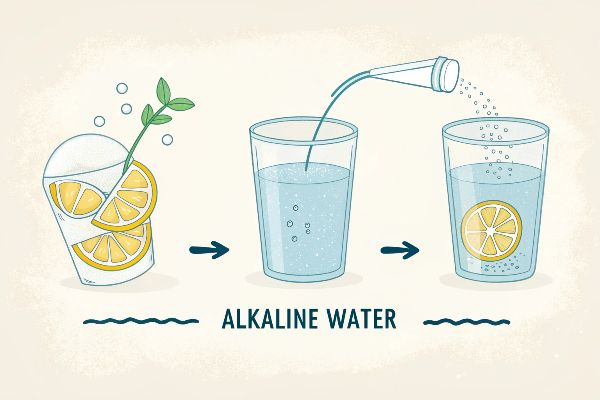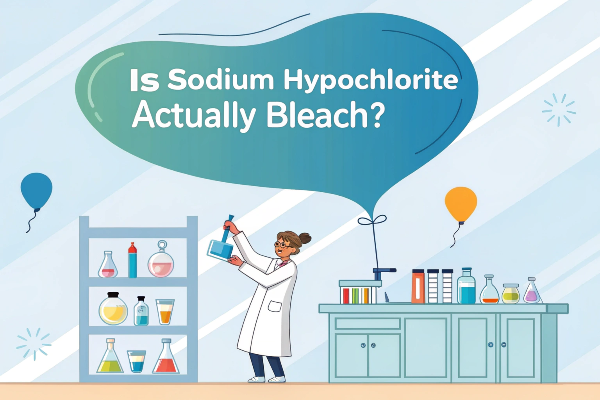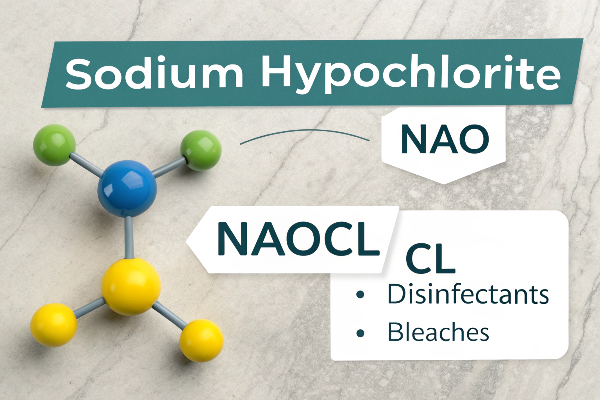Are you tired of seeing perfectly reusable materials end up in landfills, contributing to the ever-growing problem of industrial waste?
Yes, recycled titanium anodes can significantly reduce industrial waste. They offer a sustainable alternative to newly manufactured anodes, minimizing the need for mining and processing virgin materials, thus lowering waste and environmental impact.

The transition to a circular economy is no longer a distant dream, it’s happening now. Let’s explore together if recycle titanium is a good choice.
What Technologies Are Used to Recycle Titanium Anodes, and Do They Themselves Generate Significant Waste or Emissions?
Worried that recycling titanium anodes might just be shifting the pollution problem elsewhere, rather than solving it?
The primary technologies used are mechanical stripping, chemical leaching, and high-temperature sintering. While some waste is generated, closed-loop systems and careful process control minimize emissions and maximize material recovery, often exceeding 90% efficiency for waste liquid treatment.

Let’s break down these technologies and their environmental implications:
Mechanical Stripping1
This method involves physically grinding off the coating from the titanium anode. The remaining titanium substrate can then be melted and recast.
Chemical Leaching2
This process uses acids or alkalis to dissolve the precious metal coatings (like iridium and ruthenium). These metals are then purified and recycled.
High-Temperature Sintering3
This method uses high temperatures to decompose organic pollutants and recover metals.
Here is the table about the comparison:
| Method | Energy Consumption | Potential Pollution | Mitigation |
|---|---|---|---|
| Mechanical Stripping | Low | Dust | Filtering Equipment |
| Chemical Leaching | Moderate | Wastewater | Closed-Loop Treatment Systems |
| High-Temp Sintering | High | Gaseous Emissions | Scrubbers & Filters |
Life cycle analyses has shown that recycling titanium reduces carbon emissions by more than 50% compared to primary titanium production.
How Does the Chemical Composition and Performance of Reclaimed Titanium Anodes Compare to Virgin Materials?
Concerned that recycled titanium4 anodes might be inferior in quality and performance compared to brand-new ones?
Recycled titanium can achieve a purity of up to 99.2% (compared to 99.6% for virgin material). The trace impurities typically don’t affect performance, and coating adhesion5 and electrolysis efficiency6 are comparable to new products, often within a 10-15% difference in overpotential.

The slight differences in composition rarely impact performance. Let’s dive deeper into the specifics:
Composition Analysis
Recycled titanium consistently achieves high purity levels. And the trace impurities, such as Fe and Al, that remain after the recycling process are generally within acceptable limits and don’t hinder performance.
Coating Adhesion
The surface of recycled titanium is prepared. Making it just as suitable for coating deposition as new material. Adhesion tests show minimal differences, which means the coatings on recycled anodes are just as durable.
Electrolysis Efficiency
At a current density of 0.5A/cm², the overpotential of a recycled anode is only 5-15mV higher than that of a new one. This slight increase in overpotential is negligible in most applications.
Industry standards, such as ASTM B265, set thresholds for impurity content in recycled titanium, ensuring quality and consistency.
What Industries or Applications Have Successfully Adopted Recycled Titanium Anodes, and What Were Their Waste Reduction Outcomes?
Need concrete examples of how recycled titanium anodes7 are making a real-world difference in reducing waste?
The chlor-alkali industry8 and seawater electrolysis9 for hydrogen production are two key areas. One European factory using recycled anodes reduced iridium-containing waste landfill by 200 tons annually. Another project saw an 80% reduction in primary titanium ore mining over its life cycle.

Dive deeper:
Let’s look at real-world examples to understand this better.
Chlor-Alkali Industry
One European factory switch traditional anodes with the recycled ones.
They successful reduce the amount of the waste.
Seawater Electrolysis Hydrogen Production
An offshore platform using recycled anodes achieved a reduction of 80%.
These case show that For each ton of recycled titanium anode used, approximately 6 tons of industrial waste is prevented.
Many companies achieve waste reduction. These adoptions are supported by third-party certifications like the EU Ecolabel or UL ECOLOGO, verifying their environmental benefits.
Are There Economic Incentives (e.g., Tax Breaks10, Subsidies11) for Companies to Transition to Recycled Titanium Anodes?
Wondering if switching to recycled titanium anodes12 makes financial sense, beyond the environmental benefits?
Yes, many governments offer incentives. The EU’s Critical Raw Materials Act offers a 15% tax credit, and the US IRA Act provides a 30% investment subsidy. The initial cost of recycled anodes can be 10-20% lower, and with subsidies, it can reach 25-35% cheaper overall.

Dive deeper:
The economic incentives for adopting recycled titanium anodes can vary.
Tax Credits and Subsidies
Many governments worldwide are actively promoting the use of recycled materials.
Total Cost of Ownership (TCO)
When considering the total cost, recycled anodes often present a significant advantage. Because the precious metal has been recycle.
The initial cost of recycled anodes is typically 10-20% lower than that of new anodes.
Companies can apply for green credits or carbon trading.
What Are the Key Barriers to Scaling Up Recycled Titanium Anode Production, and How Can They Be Addressed?
Concerned about the potential roadblocks that might prevent the widespread adoption of this promising technology?
Key barriers include dispersed waste anode sources, lack of technical standardization13, and market skepticism14. These can be addressed through deposit-return schemes, ISO standards for recycled titanium15, and third-party testing to build trust.

Let’s address the main challenges.
Raw Material Dispersion
Waste anodes come from various sources, making it difficult to collect them efficiently.
To solve this, we need to make the collection easy.
Lack of Technical Standardization
Different recycling processes and parameters can lead to variations in the quality of the recycled material.
Formulating the ISO is necessary.
Market Awareness
Some users may have concerns about the performance of recycled products compared to new ones.
To combat this, recycling companies can jointly release third-party testing white papers.
Conclusion
Recycled titanium anodes16 offer a compelling solution for reducing industrial waste17, with proven technologies, comparable performance, and growing economic incentives. Addressing the scaling challenges18 will unlock their full potential.
-
Explore this link to understand how Mechanical Stripping works and its environmental impact in titanium recycling. ↩
-
Learn about Chemical Leaching and its role in recycling precious metals, including its benefits and challenges. ↩
-
Discover the process of High-Temperature Sintering and its implications for emissions and pollution control in recycling. ↩
-
Explore the advantages of recycled titanium, including its environmental impact and performance, to understand its value in various applications. ↩
-
Learn about the differences in coating adhesion between recycled and virgin titanium to make informed decisions for your projects. ↩
-
Discover the key factors influencing electrolysis efficiency in titanium anodes, which can help optimize your processes and applications. ↩
-
Explore how recycled titanium anodes are revolutionizing industries by reducing waste and promoting sustainability. ↩
-
Learn about the chlor-alkali industry’s innovative waste reduction strategies through recycling, showcasing real-world impact. ↩
-
Discover the significance of seawater electrolysis in producing clean hydrogen and its environmental advantages. ↩
-
Understanding available tax breaks can significantly enhance your company’s financial strategy when transitioning to sustainable practices. ↩
-
Discover various subsidies that can reduce costs and encourage sustainable practices in your business operations. ↩
-
Explore the advantages of recycled titanium anodes, including cost savings and environmental impact, to make informed decisions for your business. ↩
-
Understanding the importance of technical standardization can highlight its role in improving quality and efficiency in recycling. ↩
-
Learning about strategies to overcome market skepticism can help promote the acceptance of recycled materials in the market. ↩
-
Exploring the benefits of recycled titanium can provide insights into its potential and encourage its adoption in various industries. ↩
-
Explore the advantages of recycled titanium anodes and how they can help reduce industrial waste effectively. ↩
-
Learn about innovative strategies and technologies that industries can adopt to minimize waste and enhance sustainability. ↩
-
Understanding scaling challenges is crucial for optimizing the use of recycled materials in various applications. ↩





